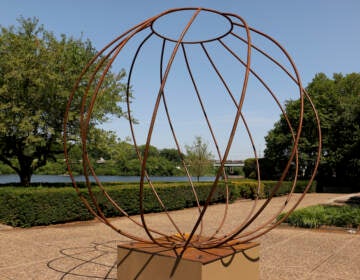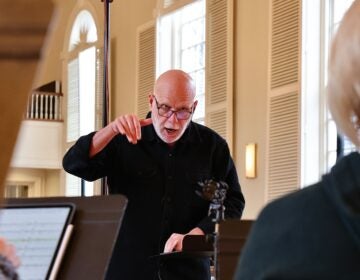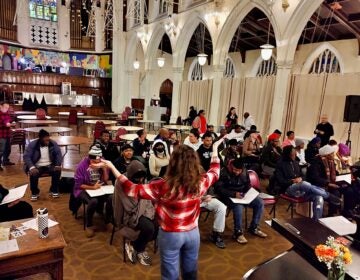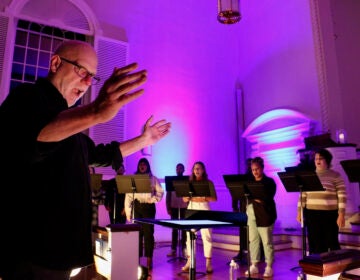Going up the country: Crossing Choir sings the economics of food
The world premiere of Ted Hearne’s “FARMING” mashes up William Penn and Jeff Bezos to trace the history of American food production.
Listen 2:45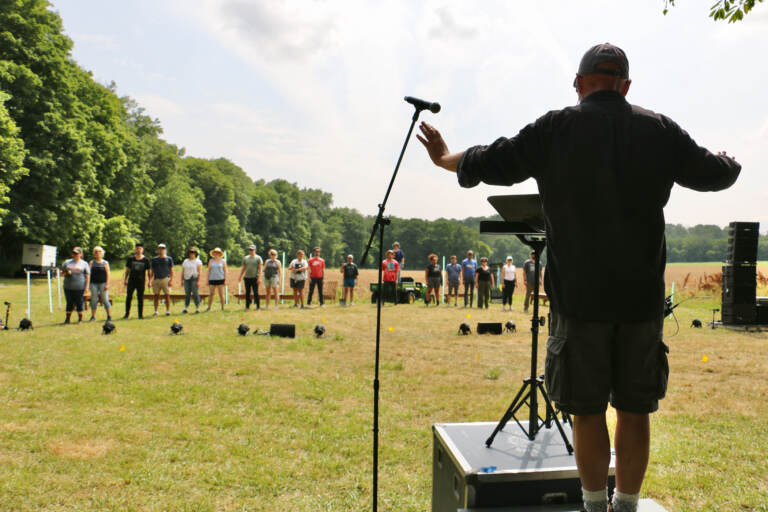
Donald Nally, conductor and artistic director of The Crossing chamber choir, leads a rehearsal of "FARMING," an original work being performed at Kings Oaks Farm in Bucks County. (Emma Lee/WHYY)
A farm in Bucks County is the setting of a new choral composition, “FARMING,” being given its world premiere this week by the Philadelphia-based, multiple Grammy-winning voice ensemble, Crossing Choir.
For conductor and artistic director Donald Nally, the Kings Oaks Farm in Newtown, Pa., is close to home: He grew up surrounded by dairy farms around Bedminster and Perkasie.
“I feel like I am connected to this land in a very deep way,” Nally said. “I feel very fortunate to have grown up in Bucks County. It’s a beautiful part of the country.”
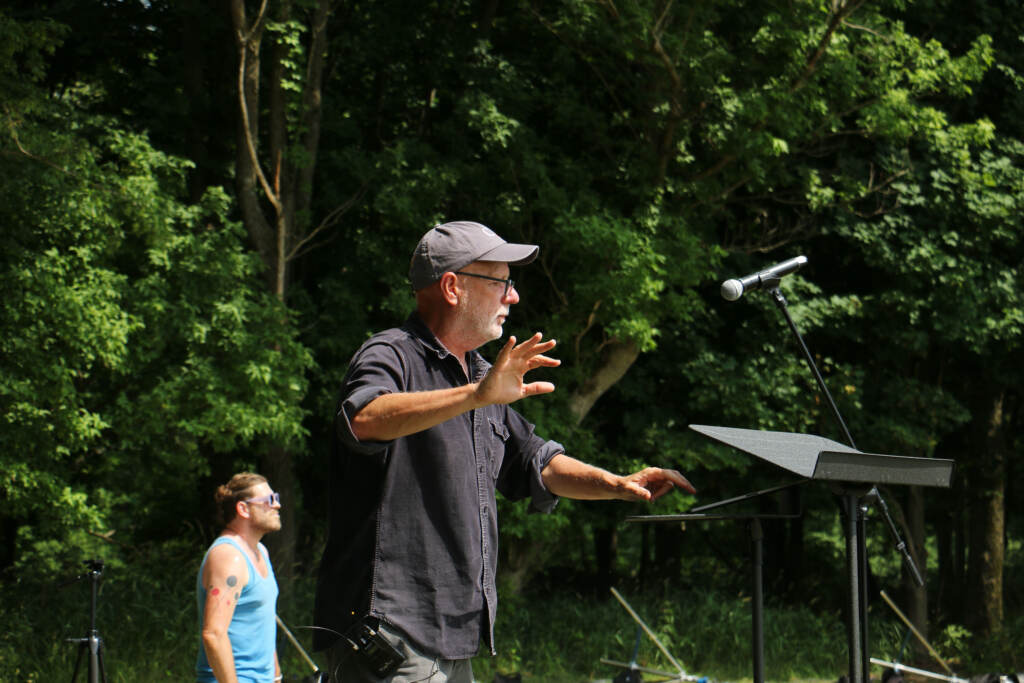
But for composer Ted Hearne, the freshly tilled soil of the organic farm is completely foreign.
“I’m a total city boy,” Hearne said during rehearsals this week, wearing purple sunglasses and a tank top, spraying bug spray on his bare shoulders. “I grew up in Chicago. I moved to New York for college and stayed there for 14 years, and then moved to Los Angeles. So the idea that I could ever speak for the perspective of someone doing agricultural work is preposterous.”
Nevertheless, it was Hearne who Nally called a few years ago with the idea that would become “FARMING,” a composition about the economics of food, how it is grown, traded, and delivered to your doorstep with a receipt stapled to the bag.
“Food sovereignty and how food gets to us — that’s something I’m really fascinated with. Most of us aren’t in touch with that at all,” Nally said. “That’s not a criticism. That’s just an observation.”
The piece suggests a fictional corporation, vertically structured from the field laborer to a bag of takeout appearing on the doorstep with a receipt stapled to the bag. But all the text is completely real. Hearne sourced his libretto entirely from pre-existing materials: From William Penn’s letters to Jeff Bezos’ speeches and the Instagram posts of UberEats.
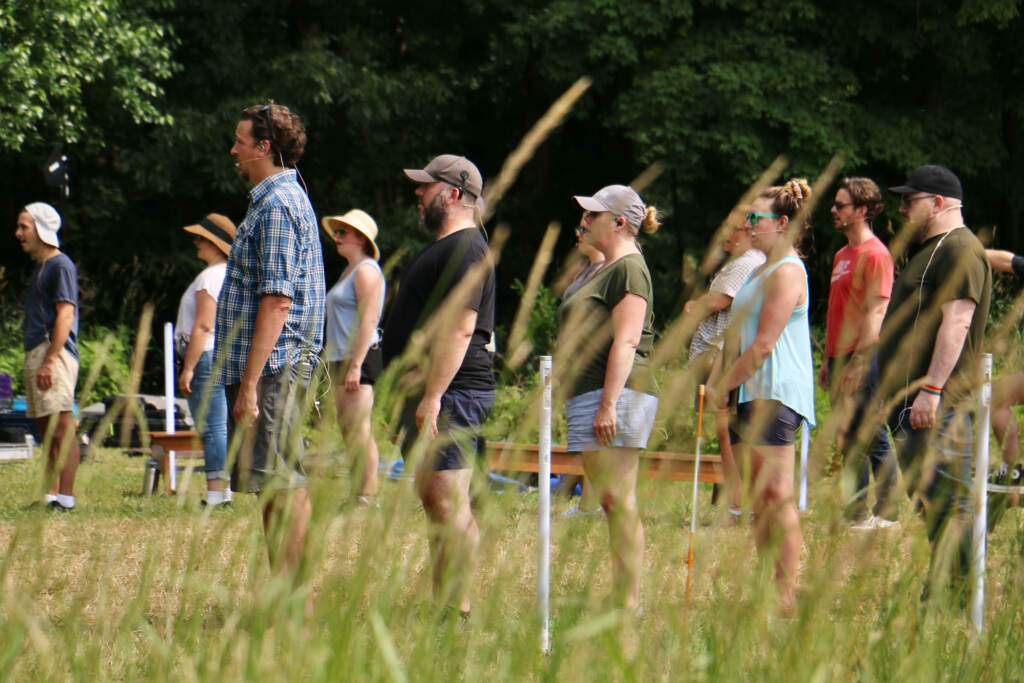
For example, in William Penn’s letters, Hearne found that the early colonialist sought to negotiate an amicable agreement with the native Lenni Lenape people, with the presumption that he already had a divine right to the land.
“He’s a pacifist, right? But he’s still saying, ‘I own this land now. It was given to me by God and the King of England,’” Hearne said. “Sometimes we paper over that because there are nastier colonists in our imagination. William Penn is not one of those people because he’s a Quaker. But he’s still saying, ‘I want to do this with your consent, but I’m doing it, anyway.’”
So what does William Penn have to do with Jeff Bezos, who founded Amazon nearly four hundred years later? Both appear as characters in “FARMING.”
Penn and Bezos have leveraged food and food production as a tool of economic power. In the 17th century, it was to acquire land and divvy it out as agrarian parcels. In the 21st century, it was Amazon’s expansion into groceries to build a home-delivery empire.
“You’re living in the middle of commerce for the entirety of this piece,” Nally said. “That’s one thing that I’m very aware of: I am living in the middle of American commerce and how it relates to food at every minute of this piece.”
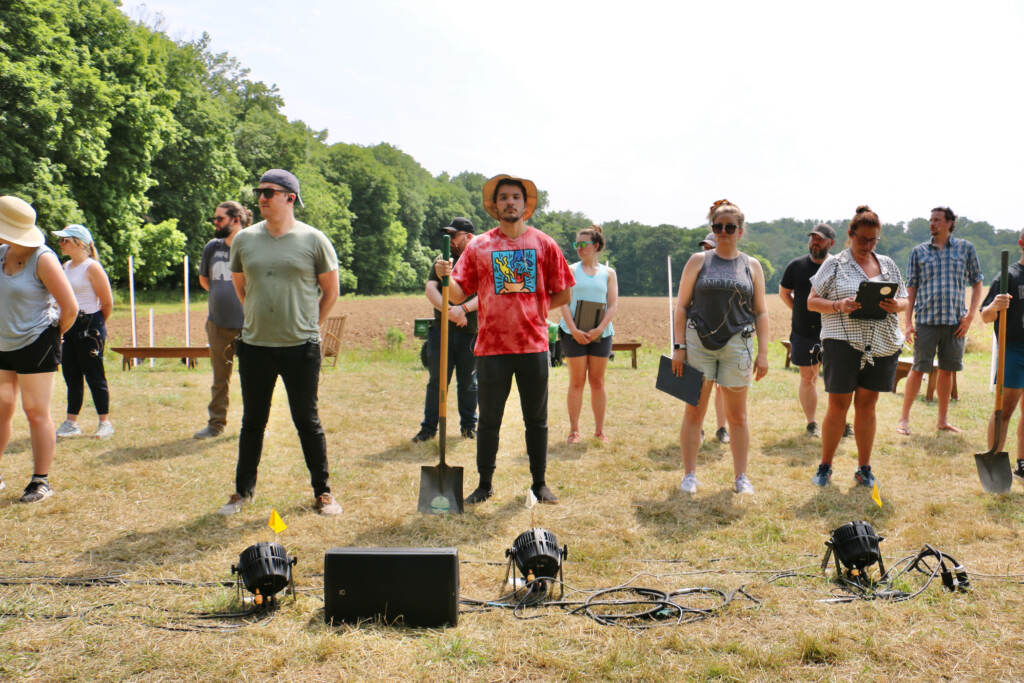
Hearne said the title comes from the word’s original meaning, which comes from contract agreements between landlords and tenants. In that sense, a farmer was not necessarily someone who worked the land — but someone who owed the fruits of his labor to a landowner.
“It’s about tenancy. It’s about leasing: sometimes leasing land, sometimes leasing labor out,” Hearne said. “It’s an early word associated with power dynamics that come with status and wealth.”
Although “FARMING” was written to be performed on an actual farm, the music often feels disjointed from the landscape. It’s jarring, with explosive bursts of samples and electronics and heavy pulses of sound. Nally described it as a “hyperpop fantasia with praise choir.”
Hearne was determined to avoid sounds that audiences might instinctively associate with agrarian work and the wide horizons of open fields, like acoustic guitars, brass horns, or harmonicas.
“I think we rely on fantasies often,” Hearne said. “We rely on agrarian fantasies that play into a sense of nostalgia that is not helpful, that is often a lie and papers over a lot of really destructive behavior. By including music that is not that, I think an audience in this space can be driven to think about some of those contradictions.”
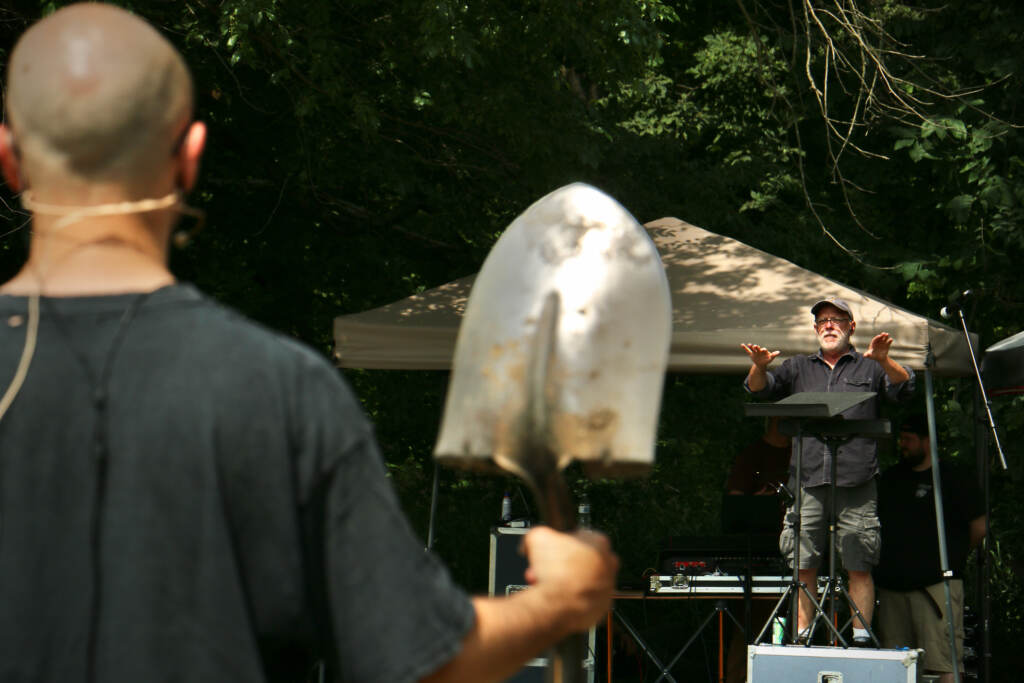
Even through the intensity of sound, the land will reveal itself.
“There’s these moments when things stop, and then there’s crickets,” Nally said. “Music is ubiquitous, and sound is deafeningly ubiquitous, so to have it stop once in a while and be reminded that there’s this whole other world that exists, it’s really beautiful. Doing the piece in the open has been so refreshing.”
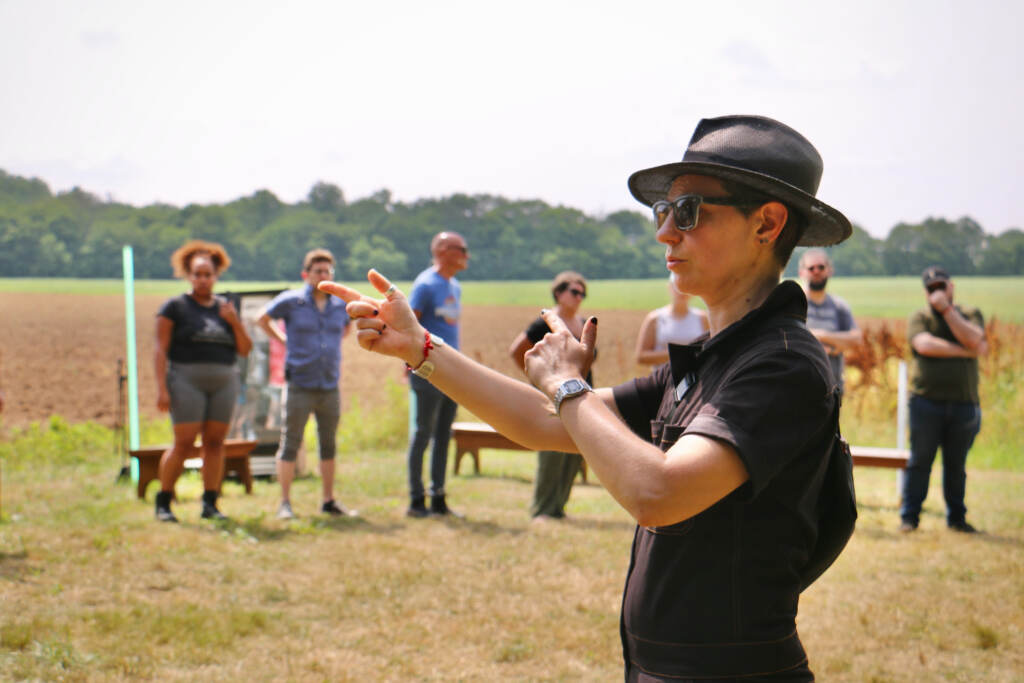
Unfortunately, the original intention to perform “FARMING” out in an open field has been thwarted due to weather. The forecast for rain on Thursday, opening day, forces the production into a nearby hanger on Kings Oaks Farm, which is covered with its large doors open.
Because of the technical complexities of the light and sound systems, the production cannot be moved back outside if the weather clears, so “FARMING” will be performed under a roof for its entire run Thursday through Sunday. It then tours the Netherlands.

Get daily updates from WHYY News!
WHYY is your source for fact-based, in-depth journalism and information. As a nonprofit organization, we rely on financial support from readers like you. Please give today.



